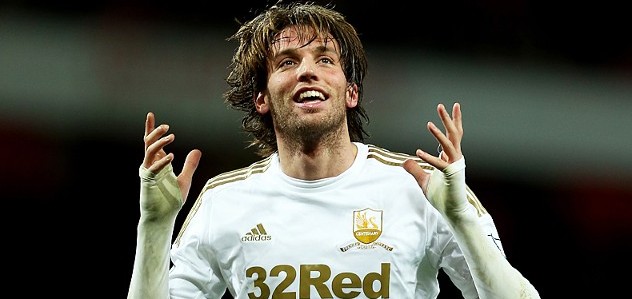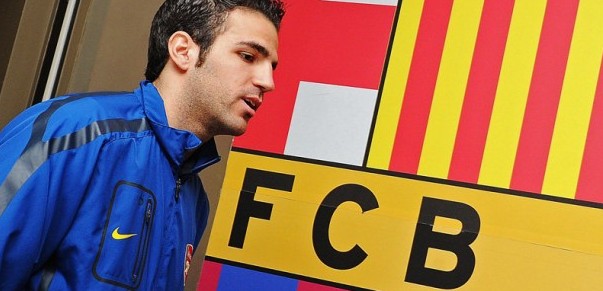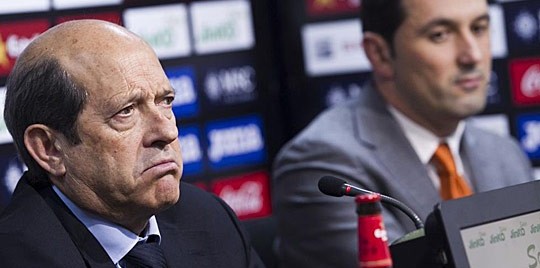TROUBLED TIMES FOR LA LIGA – Financial strife, strikes and the resurrection of Granada CF
-
Updated: 13 August, 2011
By Heath Chesters
As I write this article today, I’m following media reports and Twitter feeds with great interest about the Spanish players union AFE calling a general strike for the first two weekends ofthe 2011/2012 season.
One of the main factors leading to the strike appears to be failure to reach a suitable agreement with LFP, Spanish football’s governing body, about stronger financial support and rules regarding non-payment of player wages, with AFE requesting support and controls emulating those of governing bodies in England, Holland and Germany.
One of the key sticking points in negotiations, is the AFE requirement that should a player go unpaid for three months, they will be legally able to terminate their contract with their club.
With international body FIFApro lending their backing to AFE’s requirements, what happens here could have important global ramifications for the game.
Keeping an eye on developments, I’m reminded that not so long ago, Granada CF and their players were in the same dire situation that many clubs, from the highest level to the lowest, currently find themselves in today.
In 2002 Granada CF were relegated from Segunda B4 to the Tercera for non-payment of their players and other debts.
At that point in time, they were probably the most prominent club to face such a situation, being a club who had once played in the Spanish 1st Division.
They suffered five miserable seasons in the Tercera, playing against teams who rarely see more than a couple of hundred supporters at games.
A ray of hope emerged when former Real Madrid president Lorenzo Sanz, along with son Francisco (Paco) arrived at the club.
They gained promotion and in 2007/2008 were back in the Segunda B4.
Those rays of sunshine soon turned to darkness though. The global economic crisis hit the Sanz family hard and during the 2008/2009 season, Granada CF were once again mired in financial difficulty.
Debts mounted and players went unpaid. In January 2009 the players protested very publicly, even making national headlines.
[youtube=http://www.youtube.com/watch?v=vrcheOKqCws&feature=related]
They ran out of the tunnel wearing white shirts with “Paco Sanz Necesitamos Cobras Ya” (Paco Sanz We Need Paying Now) written on the front, with all the player and staff names written on the back.
Their opponents Melilla kicked off the match, then the Granada players immediately dropped to their knees, hands behind their backs as if manacled, in defiant protest.
There they stayed for a full minute whilst the bemused Melilla players simply passed the ball around in their own half.
They arose to a rousing reception from the fans and went on to win the game.
Summer 2009, riddled with debt and faced with relegation under league rules at best, closure at worst, it seemed like the end of the road for Granada CF.
Gino Pozzo, son of Udinese president Giampaulo Pozzo arrived in Granada to invest in the ailing club, in a deal brokered by Quique Pina, who would assume the club presidency. Deals were struck to clear debts, Udinese would loan players to Granada CF and they would try to rebuild.
The club has achieved success far beyond that, gaining consecutive promotions to reach the promised land of Liga BBVA, after an absence of 35 years.
Although the support of Udinese and use of their financial model has been a strong influence, the club is also able to stand firmly on its own two feet at last.
Quique Pina has even mirrored the deal with Udinese, by arranging a similar partnership with Segunda B4 side Cádiz CF, themselves mired in debt and formerly in Liga BBVA.
Neither club will spend above their means and financial security is just as important as success on the field of play.
So far this summer, despite estimated funds available of around €30 million to work with for the season, Granada CF has spent less than €4 million acquiring players for itself and Cádiz CF, whilst also keeping a tight reign on the wage budget.
The Granada CF squad however is one that appears capable of maintaining it’s Liga BBVA status, whilst the Cádiz CF side should comfortably gain promotion from the Segunda B4, especially when compared with other clubs around them having to sell players to survive.
So as I look at the financial turmoil, the looming threat of a player strike and doubtless much more trouble to come for Spanish football, I see a beacon of hope and a possible example to follow at Granada CF.
With the right people involved at clubs and sensible business decisions taken, clubs can be run profitably, healthily and successfully.







You must be logged in to post a comment Login